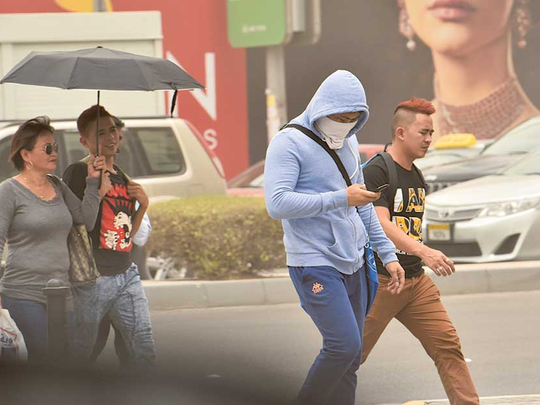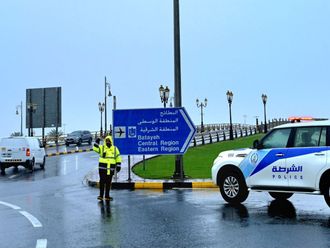
Dubai: The year’s “hottest days” may soon be over as temperatures are expected to gradually drop in less than two weeks, forecasters said on Wednesday.
Forecasters said July and August are the hottest months in the UAE when the maximum temperature is between 48 degrees Celsius and 50 degrees. But come August 22, the mercury will start to go down — albeit slowly.
“Starting on August 22, the temperatures will gradually decrease. As to how much, we cannot really say as it varies from year to year but we estimate this year to be between 2C and 4C initially,” a forecaster from the National Centre of Meteorology and Seismology (NCMS) told Gulf News.
The hot weather conditions in July extends to most of the days in August. The prevailing winds are northwesterly during the day and southeasterly during the night, according to NCMS Climate Facts.
The weather for the remainder of the month will still be hot in the 40s range but will no longer be on the upward trend.
The forecaster cautioned residents from referring to internet or car temperature readings as not all follow the standard way of measuring temperature accurately.
“The reading that you’re getting from apps, the internet, or cars usually is not accurate. When we record temperatures here at NCMS, we take it using the Stevenson screen which is placed in a location that’s away from heat sources. This is a regulation put in place by the World Meteorological Organisation (WMO), not by us.”
The Stevenson screen or thermometer screen is a standard shelter for meteorological instruments, particularly wet and dry bulb thermometers used to measure humidity and air temperature. The screen shields the thermometers from rain, high winds, hail, snow, leaves or anything that could influence the temperature reading.
Car thermometers are affected by other heat sources such as the engine, and the pavement, among others.
“When the sun is high, it heats the ground. When the ground is hot, by conduction, it will heat the air above the ground and it will continue like that. So, measuring the air temperature is the correct way of describing temperature.”
But the heat index, or the measure of how hot it really feels, is a different matter altogether. This takes into account relative humidity with the actual air temperature. So, the higher the humidity, the hotter it feels since the body can no longer cool itself down because sweat cannot evaporate any more as the air is already saturated with moisture.
The forecaster said there will be no huge difference in the weather on Thursday and Friday as it will continue to be hot. On Thursday morning and evening, relative humidity is expected to increase, especially in the Western Region, contributing to people’s discomfort.
Convective clouds associated with rainfall may form over Al Ain and Hatta and some southern areas of the UAE.












